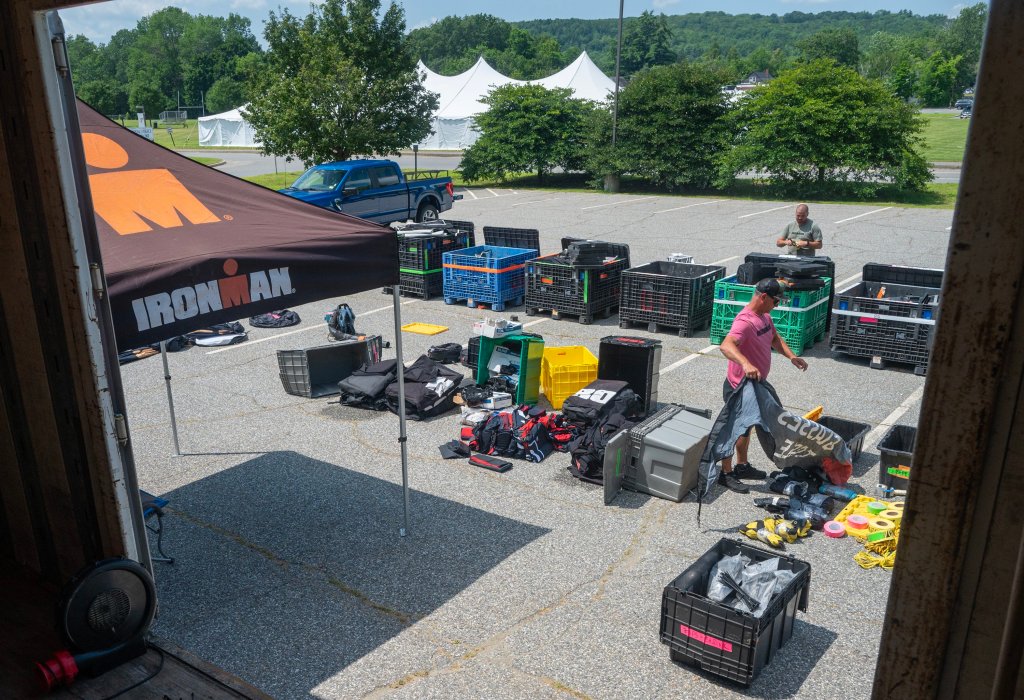AUGUSTA — One of the newer courses the Ironman Triathlon series has to offer, Maine’s capital region is set for the sequel after putting on a memorable inaugural event last year.
The second Ironman Maine 70.3 is set for this Sunday in Augusta and the surrounding communities. Approximately 2,200 athletes will descend on the area to traverse a half-triathlon course that, despite a few differences, looks largely similar to one that seemed to work well a year ago.
Last year, competitors started with a 1.2-mile swim down the Kennebec River, starting below Bridge Street in Augusta and finishing just south of the Capital Park Recreation Fields. They then biked a 56-mile loop through Augusta, Chelsea, Pittston, Dresden, Richmond, Litchfield, Gardiner, West Gardiner, Hallowell and Farmingdale before running a 13.1-mile double-loop down the west side of the river.
Although the course, race director Ryan Jarrell said, received positive reviews as a whole, one part stood out: the swim portion. Located in a straight portion of the river with some ideal conditions, the 1.2-mile swim received an Ironman Athletes Choice Award as one of the top-five Ironman swim courses in North America.
“I think some of it has to do with the tide and the current, sure, but it’s really a great point-to-point swim course,” Jarrell said. “It has a water depth that’s not crazy shallow and not crazy deep, people can sight it well — the sun’s not right in their face — and it’s in a beautiful spot in town.”
The swim course is identical to last year’s with the exception of differing water levels due to recent rainfall and an improved swim-out area. The biking portion looks rather similar in shape, though there’s a different approach into Hallowell as well as fewer turns than last year.

The sweeping left turn from Hallowell-Litchfield Road onto Middle Street in Hallowell will be part of bike course for this Sunday’s Ironman 70.3 race. Joe Phelan/Kennebec Journal
The running section, though, does have somewhat of a new look to it with the conversion of the double-loop course to a single-loop one. The change has expanded the running section to include new areas south of the Calumet Bridge on both sides of the river in Hallowell, Farmingdale and Augusta.
“A lot of athletes wanted to run with the course, so we went back to the drawing board and did some things differently,” Jarrell said. “Last year, managing a two-loop course was easier for folks that hadn’t seen this kind of event before to manage, but whenever you get through that first trial run, you can make adjustments. This is one of the bigger ones we were able to do.”
It’s a course, Jarrell said, that is among the most picturesque of any triathlon or half-triathlon that Ironman organizes — and, more importantly, provides more shade along the way than all but a few of its counterparts. Local communities and authorities, he added, have been particularly accommodating.
“Augusta has the right DNA for a triathlon,” Jarrell said. “The area is fantastic for swim, bike and run, it breaks down really well into zones, and it’s an area with a lot of history where a lot of people want to go. We’re excited for a great day here on Sunday.”
Send questions/comments to the editors.







